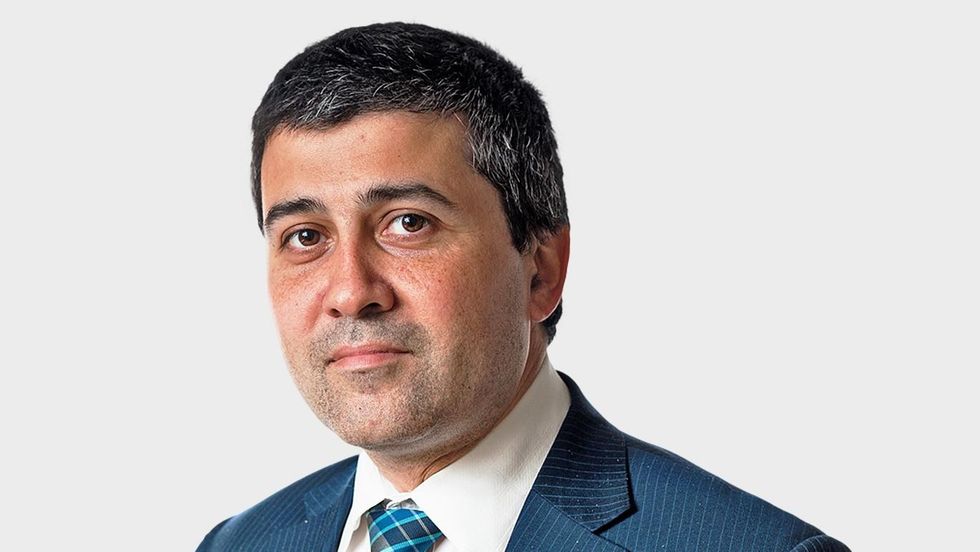FEW Commons inquiries have had so dramatic an impact as the Culture Select Committee’s probe into racism in cricket published last week.
Just announcing the hearings had proved a crucial tipping point towards regime change at Yorkshire County Cricket Club (YCCC), once the chair and chief executive has been invited to come to Westminster to give testimony alongside their former player Azeem Rafiq.
But after all the public drama, the committee published a strikingly short report of just seven pages or so.
The challenge in 2022 is different – how to make the hard yards of progress and sustain momentum once the headlines have moved on.
‘Money talks’ was one key message from the select committee, in recommending that public funding should depend on the England and Wales Cricket Board (ECB) making sufficient progress.
The sponsors had played a decisive role last year, moving more quickly than the governing body. The ECB followed suit in choosing to flex its financial muscle – removing, temporarily at least, the international matches due to be played at Headingley this summer.
The focus on financial threat will secure attention, but the roadmap to reform will also need stamina to sustain action once financial sanctions are lifted.

The select committee announced that it wants the ECB and Yorkshire to report quarterly on progress against key indicators, starting this month – a useful way to institutionalise the pressure for change. But it will need the right indicators for both short- and long-term progress.
More Asian professionals breaking through into county sides will take time. So, this timescale will require new indicators to assess whether the game is getting on track.
A 12-point ECB Action Plan was published quickly as the crisis broke last year, following a summit convened in response to the demand for rapid action. It is a sensible, gradualist framework for change, though several of its aims are long-term and overlap with those of previous initiatives.
These include cricket’s South Asian Action Plan of 2017, which did not shift the dial as much as had been hoped, nor address the institutional culture in boardrooms and dressing rooms in the professional game.
The question asked most by attendees at last week’s Eastern Eye-British Future event on racism in cricket was how to make sure that the plan for change does not turn into the latest “box-ticking” exercise.
That is, above all, a question of organisational culture. Creating policies and procedures that say all the right things is often the easy part. There can be a world of difference in how the same rules and policies may play out in different institutional cultures – whether the values stated in the mission statements and corporate brochures are felt to be reflected in practice, or whether those who speak up fear being labelled as trouble-makers.
In Rafiq’s employment tribunal case, both Rafiq and Adil Rashid spoke about the culture of racism at Yorkshire, as early as autumn 2017, to a new Asian board member who had just been appointed as head of diversity.
When Rafiq escalated this into a formal complaint the following summer, he found the board member attentive, but heard him explain “how the board meetings worked and the lack of interaction and input he had as head of diversity”.
For all of the diversity dinners and mission statements, Rashid, even as an England international, cannot get his voice heard about either the toxic culture in the dressing room nor the denial about it at the top table.
Inclusion is fundamentally a matter of hearts and minds, so it matters who owns the plan for change.
The ECB needs deeper engagement to secure the trust of British Asians in the process – but it is not only black and Asian engagement that matters.
The select committee’s MPs, who report shocking language in correspondence after the Rafiq hearing, warn against complacency in assuming everybody buys into the need for change.
In the past, cricket has approached inclusion in silos – talking to Asians about minority outreach, while projecting anti-racism slogans to the majority group. The push for reform must break this segmented pattern.
The Independent Commission for Equity in Cricket will collect personal testimonies and give those who have experienced prejudice a voice. That should be joined up with an engagement effort to ensure that the push for reform does not belong only to minority voices and groups.
In these difficult times, ‘bridging’ voices who can build common ground between different groups will play an important role. There needs to be a positive vision, not just a compliance-led approach. It will require honesty and generosity too.
Rafiq’s latest intervention was to call for Yorkshire to get its Test match status back. That could symbolise the approach we need – one that is about securing sustainable change, rather than cancellation for the mistakes of the past, and a shared vision of a more inclusive future.



















 His Highness Prince Rahim Aga Khan V
His Highness Prince Rahim Aga Khan V


Inclusive approach needed for cricket’s equality drive